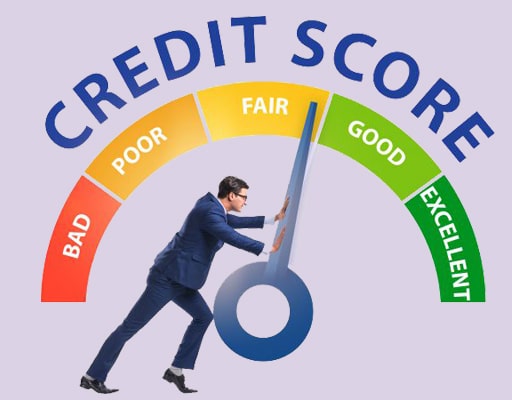For the past few years, business owners across the country have had trouble getting access to the credit they need to run their businesses. Unfortunately, that lack of capital has led many entrepreneurs to fail as they were unable to make payroll or pay their suppliers. Fortunately, that situation may soon be resolved as Congress is currently working on credit solutions that will help small businesses gain access to the financing they need to succeed in the marketplace. Though no final bill has been passed yet, there are many actions you can take now to ensure you’re ready when it does become available.
1: Improve your credit score
Chances are, when you started your business, you didn’t think about your personal credit score and how it might affect your company. Many small-business owners don’t know that a low credit score can make them less attractive to banks. However, with a little bit of effort and preparation, you can improve your credit score—which will make life easier for both you and your small business down the road. This post from Matthew Eckerman details some simple steps any entrepreneur can take to raise their business’s profile by improving their own credit profile.
It was getting late on Friday, I was racing against time to finish our latest product introduction before heading out of town on vacation in two days. But our product managers were suddenly spooked: they weren’t so sure customers would buy our new offering without better terms than we had negotiated in years past. They were right; we needed more options to ensure we got at least one order. That meant calling an old sales lead that had not returned my calls in months but may have been amenable if I made him feel important enough! It also meant reviving an offer that had been sitting unapproved on someone else’s desk until now because no one wanted to work after 6 PM last Friday evening! Credit solutions’ Saturday Delivery option really helped me speed things up.
2: Secure credit cards
Securing a credit card is an easy way to get immediate capital on hand. For small business owners, securing credit cards is a good option because they carry less risk than other forms of funding. The biggest risk with secured credit cards is that you’ll max out your line of credit and fail to pay it off each month, meaning you’d end up paying back more money in interest than you borrowed in the first place. To avoid that, don’t take out more money than what you can afford to pay back each month. That said, secured cards are great—if you handle them correctly—for their low (or no) annual fees and higher interest rates for cash advances.
If you have access to a credit card with rewards like frequent flyer miles or points toward travel, points toward retail merchandise or cash back, then that’s even better. But be aware: If you have bad credit, you might not be approved at all for a credit card. You also might need some collateral if your employer doesn’t offer payroll services and prepaid debit cards aren’t available where you live. If so, then secured cards are typically your best bet when trying to secure business funding quickly and easily.
3: Secured business loans
If you have a hard time securing capital from banks, secured business loans may be a viable option. The process is similar to that of applying for an unsecured personal loan, but you will put up your assets as collateral (such as real estate or vehicles). Secured business loans are ideal if you need more money than what credit cards or savings can offer. Although these options are less risky than unsecured loans, they do come with high interest rates, which should be taken into consideration when applying. There are multiple places you can get a loan—here’s how to pick one: Which Type of Loan? You’ll first want to determine which type of credit solution fits your needs and goals. In most cases, businesses take out lines of credit or secure small-business loans and then draw on them as needed based on operating costs.
4: Tips for improving your personal credit score

– Always keep your cards in good standing. – Pay your credit card bills on time, every time. – Don’t close any cards unless you have to. A big negative mark on your credit report can be getting a new account and opening it up too quickly or within a short amount of time of getting rid of an old one. It’s best to wait at least six months before applying for a new account or two years if you’re replacing an existing one. If you don’t use your cards, it may be better to close them. Keep just enough available credit available (10-15%) so that lenders will see that you’ve got room to grow if necessary, but not so much that it hurts your score when balances are higher than they should be. –
Utilize bank statements: You might already do a good job paying off credit card bills as soon as you get them; however, there is another way that affects your score without even knowing about it. Banks often post entries to credit reports months after payments were made because of how their systems work; however, waiting until then often results in larger late fees and interest charges because of missed deadlines. Reviewing monthly bank statements is one way to help determine whether mistakes are being made or payments aren’t showing up on credit reports as expected.
Keep tabs on inquiries: Credit applications create what’s called inquiries for a reason—they give creditors a chance to review your information and decide whether or not you’ll make a worthwhile customer from their perspective.





